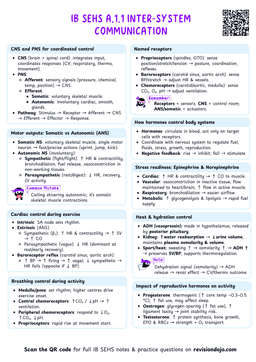Mental Toughness: A Key to Success in High-Pressure Situations
Mental Toughness
Athletic success is influenced by multiple factors, including physical, tactical, technical, and psychological aspects, with psychological strength often being the key differentiator between winners and others. One of the most important psychological traits in elite sports is mental toughness, which both athletes and coaches regard as crucial for achieving high performance.
- Multidimensional trait that contributes to high-performance success.Key Characteristics:
- Unshakable self-belief → Confidence in one's abilities.
- Resilience → Ability to bounce back from failures.
- Persistence → Refusal to quit despite challenges.
- Coping with adversity & pressure → Thrives in difficult situations.
- Maintaining concentration → Focuses despite distractions.
The Core Components of Mental Toughness
- Appraisal of Challenges: Mentally tough athletes view challenges as opportunities for growth rather than threats.
- Commitment: High levels of dedication and persistence enable athletes to push through obstacles and stay on track toward their goals.
- Confidence: A strong belief in one's abilities reduces self-doubt and enhances performance, even in the face of adversity.
- Perceived Control: Mentally tough individuals feel in control of their actions and responses, which helps them manage stress effectively.
- Resilience: The ability to bounce back from setbacks and maintain a positive outlook is a hallmark of mental toughness.
Attributes of Mental Toughness
Jones(2002) identified key attributes of mental toughness, including:
- Self belief
- Determination
- Resilience
- Handling pressure
- Coping skills
- Remaining focused
- Persistence
Developing Mental Toughness
Psychological Skills Training (PST):
Psychological Skills Training
Psychological Skills Training (PST) is a change-based approach designed to enhance athletic performance by helping athletes manage their thoughts, emotions, and mental states. Traditional PST interventions focus on achieving an optimal internal state by evoking positive thoughts and emotions while avoiding negative ones, setting it apart from mindfulness-based approaches, which emphasize acceptance rather than control.
- Goal Setting: Establish clear, achievable goals to maintain focus and motivation.
- Imagery: Visualize success and rehearse coping strategies for high-pressure situations.
- Self-Talk: Use positive affirmations to build confidence and reduce anxiety.
- Mindfulness and Self-Compassion:
- Mindfulness: Enhances focus and emotional regulation by promoting present-moment awareness.
- Self-Compassion: Encourages athletes to treat themselves with kindness, common humanity and mindfulness, reducing harsh self-criticism and promoting resilience.
Common Mindfulness Training Methods:
- Mindfulness-Acceptance-Commitment (MAC) approach → Focuses on acceptance, values, and commitment to performance.
- Mindful Sport Performance Enhancement (MSPE) approach → Helps athletes stay present, regulate emotions, and improve focus.
- Mindful Self-Compassion approach (Neff & Germer, 2018) → Encourages self-kindness, resilience, and positive self-talk.
- While mental toughness is valuable, excessive persistence or self-judgment can be harmful if not balanced with self-awareness and smart decision-making.
- Example:
- A long-distance runner competing in a marathon may push through severe pain, believing that quitting would be a sign of weakness.
- While this mental toughness helps them endure the race, it could also lead to ignoring a stress fracture, worsening the injury.
- Instead of allowing time for recovery, their stubborn persistence could result in long-term damage, ultimately harming their performance and career longevity.
Measuring Mental Toughness
- Mental Toughness Measurement Issues
- No clear consensus on defining mental toughness.
- Includes various constructs like self-belief, resilience, and coping skills.
- Mental Toughness Questionnaires
- MTQ48 (Clough et al., 2002):
- Based on hardiness subcomponents (control, challenge, commitment) + confidence.
- Criticized for focusing mostly on hardiness rather than overall mental toughness.
- Other Questionnaires:
- Sports Mental Toughness Questionnaire (SMTQ, Sheard et al., 2009).
- Mental Toughness Index (MTI, Gucciardi et al., 2015).
- Use Likert scales to assess athletes' mental toughness.
- MTQ48 (Clough et al., 2002):
- Challenges in Measuring Mental Toughness
- Difficult to observe mental toughness directly.
- Relies on self-reporting, which may not be completely accurate.
- More research needed to test reliability and long-term stability of mental toughness measures.
- Limitations of Self-Report Assessment
- Limitations of Self-Reporting in Psychological Studies
- Issues with self-presentation bias (desire to give a good impression).
- Expectancy effects (providing answers assumed to be desirable).
- Psychometric tools are used to assess psychological constructs, requiring published reliability scores.
- Traits vs. States
- Traits: Stable characteristics.
- States: Malleable and influenced by training.
- "States can become traits": Over time, temporary states (e.g., anxiety, mindfulness) can develop into trait-like characteristics.
- Implications for Mental Toughness Measurement
- Difficult to assess using self-reports due to state-trait overlap.
- Similar challenges exist in measuring psychological skills, mindfulness, and self-compassion, which are also linked to mental toughness.
- Limitations of Self-Reporting in Psychological Studies
How do individuals with high mental toughness manage stress?


